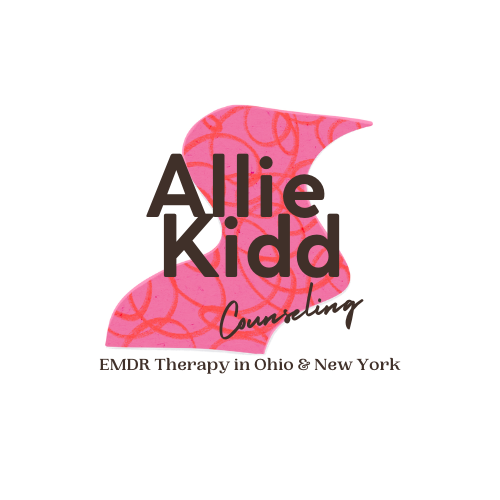
EMDR for Grief
Grief can feel like waves crashing down on you. EMDR can help you stay afloat.
EMDR doesn’t get rid of your emotions around the loss. It does allow you to grieve with a greater sense of balance and serenity.
EMDR Therapy, Eye Movement Desensitization and Reprocessing Therapy, is a highly researched and effective therapy model. It uses eye movement or other forms of bilateral movement, in order to desensitize memories. For grief, it’s used to reintegrate upsetting, distressing memories into the broader memory so that you aren’t all consumed by your loss. Memories are de-charged, meaning they will still be there, but they won’t feel overwhelming and get triggered as often.
Folks who feel overcome by grief may be experiencing:
replaying the moment you realized your loved one was gone
intrusive, unwanted thoughts about the death popping into your head and taking over
intense emotions such as anger, fear, sadness, confusion and guilt that interfere with your daily living
vivid images or other sensory channels related to the death (sounds related to death such as breathing or emergency vehicle sounds, physical sensations, pictures of autopsy, etc)
FAQs about EMDR for Grief
Will EMDR make me forget my loved one?
EMDR will not erase any memories of your loved one. It does not eliminate or change any healthy grieving process, emotions, memories. In fact, after reprocessing the events and specific distressing memories related to your loss, the positive memories of your loved one and other positive experiences will be more easily recalled/accessed.
How long will EMDR take to work for grief?
There’s no set time for how long EMDR takes, generally speaking. However, research has indicated that EMDR therapy is a quicker, more efficient way of addressing trauma and distress. One year of EMDR therapy can be compared to three years of traditional talk therapy.
For folks who don’t want to or cannot commit to weekly therapy, I often suggest EMDR intensive sessions which are longer sessions that take place with specific treatment goals (such as to reduce effects of complicated grief) and are typically 3-6 hours long.
How much detail will I have to share with my therapist?
You will not need to share specific details about the loss for EMDR to be effective. Your therapist will gather some information from you in order to create a plan for your reprocessing. This will include some information about the following:
the moment you realized your loved one was gone (could also be prior to death, a look from a doctor, etc)
events before, during and after that you find distressing related to this death (could be finding out details post death, image of the funeral, you imagining your loved one at time of death, etc)
nightmares (if applicable) and unwanted thoughts
present triggers (being on social media, certain people/relatives, feelings of guilt, responsibility, etc)
When should I start therapy for grief?
There’s no right answer that would apply to all. As a therapist, I have seen folks come in immediately (days) after a loss and that was the right time for them and they found relief quickly. For others, they felt more comfortable seeking help after a few months of mourning with no symptom relief.
Clients dealing with the ongoing grief of a loved one may seek therapy before a death because they:
have been watching their love one’s abilities/functions shift and decline
struggle with the transition to caregiving for an aging parent
feel overwhelmed with responsibility
are angry that this is happening to them
What I suggest is seeking therapy as soon as you reasonably can if you’re feeling overcome by grief that is affecting your day to day life.


